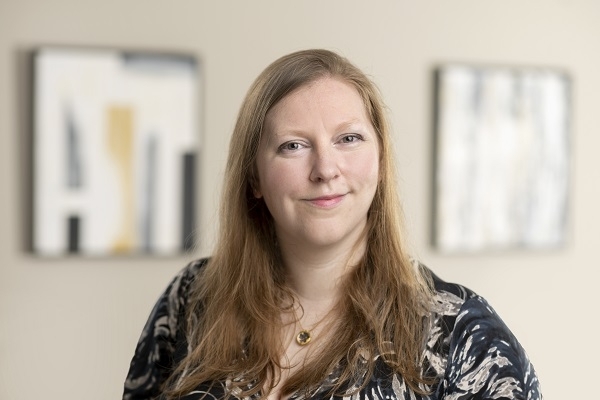Tue 8th Oct 2024
Celebrating Ada Lovelace
Service: Patents
Sectors: AI and data science
Ada Lovelace Day is held on the second Tuesday of every October to celebrate and increase the profile of achievements of women in science.

Patent Attorney Liz Mills reflects on Ada’s accomplishments as a pioneering mathematician, whose work laid the foundations for the computer/AI technologies we rely on today.
Ada Lovelace was a 19th Century mathematician and writer renowned for her work relating to the early development of computers. Despite only living to the age of 36, she is widely credited with writing one of the world’s first computer programs, and for recognising the potential of computers for acting on things other than numbers. She even suggested that some computers of the future could compose music!
While some historians disagree on the exact nature of Lovelace’s contribution, there seems to be no doubt that Ada Lovelace was an excellent scientific communicator. For example, when criticising the perceived level of Lovelace’s contribution to Charles Babbage’s analytical engine, one of her critics wrote that Lovelace “made a considerable contribution to publicizing the Analytical Engine, but there is no evidence that she advanced the design or theory of it in any way”.
This apparent reduction of Lovelace’s role from inventor to science communicator feels almost dismissive in tone. However, the importance of Lovelace’s work in communicating scientific principles clearly should not be underestimated. As expressed by one of Lovelace’s defenders, Lovelace was able to extract from Babbage’s correspondence “a clear exposition of the abstract operation of the machine – something which Babbage never did”. It is perhaps because of the clarity of her writing that Lovelace herself has been cited as inspiring countless individuals to study and work in the field of computing.
The importance of scientific communicators in general is too often dismissed as being less noteworthy than that of inventors, despite these roles being symbiotic: without a strong voice to explain concepts clearly, science and invention cannot advance as quickly. Indeed, we only have to consider Shinichi Mochizuki’s so-called “impenetrable proof” of the abc conjecture to recognise the difficulties in advancing within a field when innovations are not clearly explained.
The symbiotic relationship between communicators and inventors is exemplified by the existence of the patent system. In fact, patent systems were largely established to provide a reward (e.g., a patent) to an inventor in exchange for a disclosure that enables other people to understand their work. As patent attorneys, we work as communicators for inventors every day in order to help them comply with the disclosure requirements of different patent offices.
And so, in the spirit of Ada Lovelace Day and her contribution to communicating scientific concepts, PWF are proud to list some of our favourite female science communicators. We hope you enjoy their work as much as we do!
Dr. Hannah Fry: Dr. Hannah Fry is a British mathematician, radio, and television presenter. She has worked on a large variety of projects, including “The Curious Cases of Rutherford & Fry”, “Making Sense of Cancer with Hannah Fry”, and “The Secret Genius Of Modern Life”.
Dr. Margaret (Maggie) Aderin-Pocock: Dr. Maggie Aderin-Pocock is a British space scientist and science educator. She has co-presented “The Sky at Night” since 2014, and was elevated to Dame Commander of the Order of the British Empire (DBE) in the 2024 New Year Honours for services to science education and diversity.
Maddie Moate: Maddie Moate is a British television presenter, radio pundit, YouTuber, and children’s author. She has been the resident technology expert on BBC 5 Live’s Saturday Edition since 2014, and her factual CBeebies series “Maddie’s Do You Know?” led to her BAFTA Children’s award win in 2017 as a presenter.
Prof. Alice Roberts: Prof. Alice Roberts is a British academic, TV presenter, and author. Some of her work includes “Coast”, “Origins of Us”, and “The Incredible Human Journey”. In 2012, Roberts was appointed the University of Birmingham's first Professor of Public Engagement in Science.
Dr. Helen Sharman: Dr. Helen Sharman is a British chemist and astronaut. She has devoted several years to communicating science to the public and performing outreach activities for both chemistry and space travel, and, amongst her many other accolades, was appointed a Companion of the Order of St Michael and St George (CMG) in the 2018 New Year Honours for services to Science and Technology Outreach.
For further information about protecting your scientific inventions, please contact Liz Mills.


